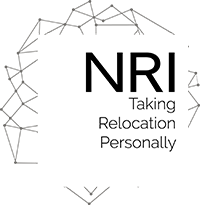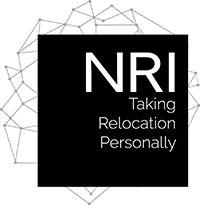The Millennial generation has a reputation for living with Mom and Dad and not being interested in relocating. At the same time, this generation of employees also has a reputation for job hopping. As with so much in Life, both of these assumptions are only partly true.
In fact, millennials are moving out of Mom and Dad’s house and away from their hometown. According to 2016 survey research by Mayflower, 59% of 18- to 35-year-old’s currently live in a locale other than their hometown and almost 80% have moved at some point in their lives, not counting moves made to attend college. And, over half of those moves (51%), were reportedly for career reasons. 
It’s true that this wasn’t always the case. Just a few years ago, many HR professionals found getting millennial employees to accept transfer offers was challenging, at best, and near impossible, at worst. But times have changed.
Millennials – particularly the ones born in the early part of this generation – are maturing and starting to work on their personal lives. While furthering their career remains important to them (in the Mayflower study, 75% of those surveyed said they would be willing to relocate for career reasons), the early members of the Millennial generation are getting married, starting families, and buying homes.
Yet, according to a study by Runzheimer, 78% of HR professionals still say they are less likely to relocate millennials due to their “job-hopping” reputation – in spite of the fact that the same study also found that that 48% of millennials have been with their current employer for at least three years.
This means that not considering millennials for relocation may be a costly mistake for companies. As you know, there are several excellent reasons why a company should consider relocating employees from their current talent pool, instead of hiring new employees.
One of the best reasons is to ensure your company retains its top talent. Millennials, having grown up in a time of economic uncertainty, have fewer expectations about remaining with the same company for their entire working careers than did previous generations. At the same time, millennials value new learning experiences; especially those experiences which are advantageous to their careers. A relocation offer that presents an opportunity for a millennial employee to learn new skills and move up the career ladder is likely to be viewed favorably.
To make the offer even more attractive, companies should consider revising their relocation packages to include incentives most attractive to millennial executives, such as family and spousal assistance, and bonuses tied to specific events such as the purchase of a home. (In the Runzheimer survey, 35% of millennials regarded a bonus as a key perk, compared to 25% of Baby Boomers.)
As relocation professionals, we’re seeing a significant shift towards younger employees relocating. Companies that are expanding – and particularly those engaged in succession planning – may want to review how they acquire and retain their best talent, how their employees of the future plan their careers, and how their relocation program may be best utilized to enhance bringing the goals of employees and employer together successfully.
NRI Relocation policy design services helps companies design their relocation program to look forward, not back. Whether we start from scratch, or revamp an existing program, we can help you design a relocation program that you are confident supports your recruitment and retention objectives, and is right for your company. To find out more, give us a call at 1-800-598-8887, or request a callback by sending us an email here.

